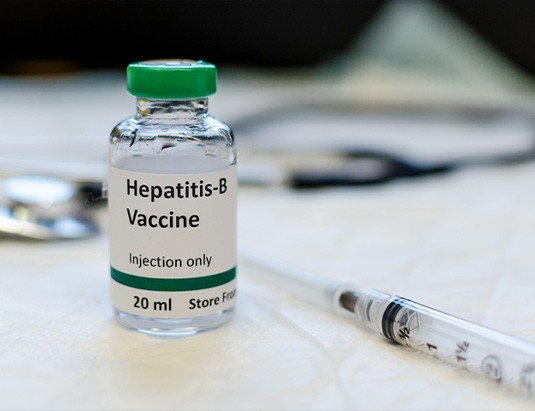
Hepatitis B
Hepatitis B is a liver infection caused by the hepatitis B (HBV) virus. It’s spread when blood infected with the virus enters another person’s body via semen and other bodily fluids, although it’s most commonly spread via blood-to-blood contact. The infection may be brief (acute) or life-long (chronic). When you have chronic HBV, you may become susceptible to cirrhosis (permanent scarring of the liver), liver failure, or liver cancer. A vaccine can prevent hepatitis B, but there is no cure. Approximately 257 million people worldwide have HBV.
What are the Types of Hepatitis?
The three main types of hepatitis are hepatitis A, hepatitis B, and hepatitis C. They’re all liver infections, and a different virus causes each one. Hepatitis A is an acute infection. Hepatitis B and C can start as acute infections, but they stay in some people’s bodies and become chronic infections. Although there are preventative vaccines for hepatitis A and B, there is no vaccine for hepatitis C.
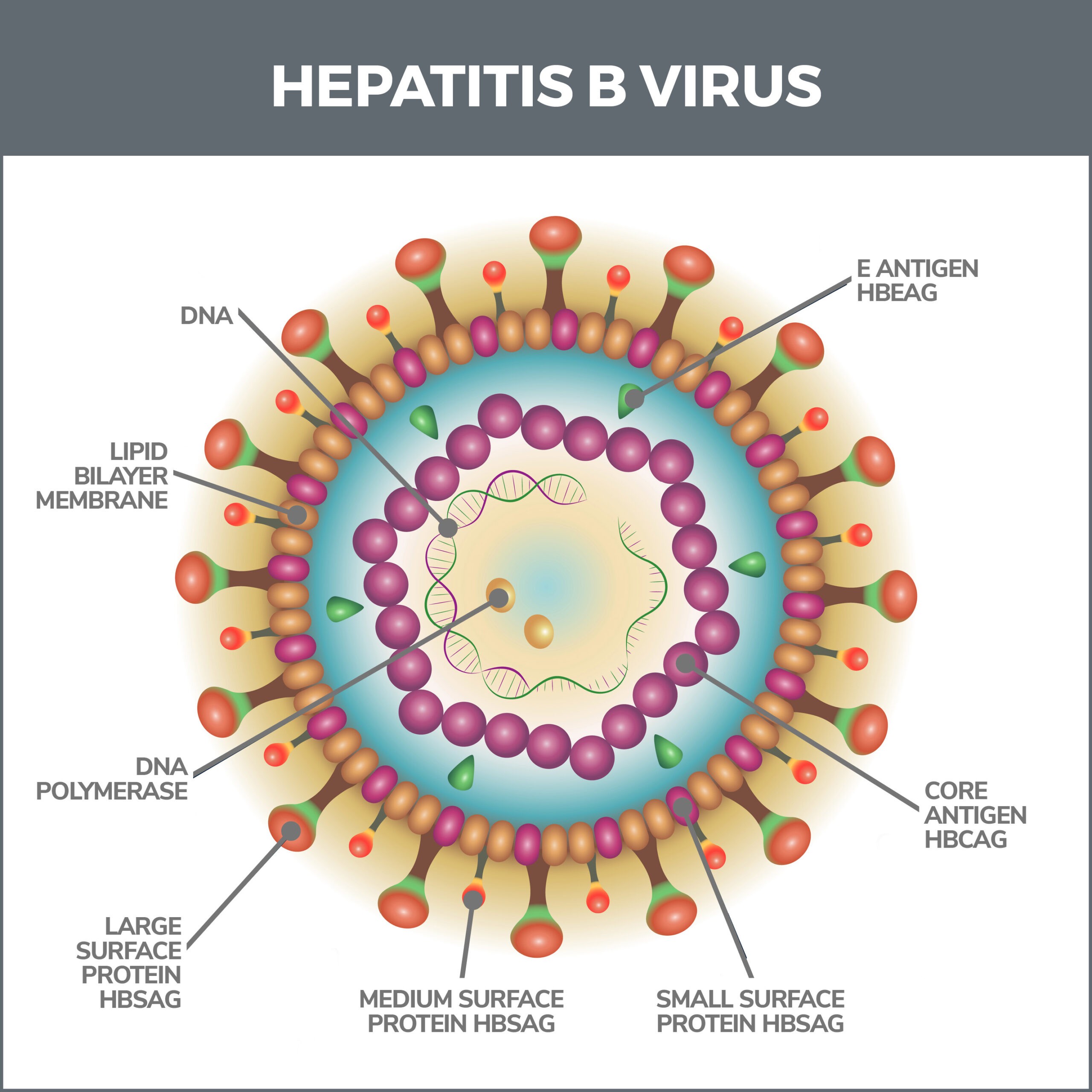
How is Hepatitis B Transmitted?
People can become infected with HBV from:
- Contact with semen, vaginal fluid, menstrual fluid, blood, or saliva from an infected person.
- Shared needles, syringes, or other drug paraphernalia.
- Sharing razors, toothbrushes, glucose monitors, body jewelry, or nail clippers with an infected person.
- Contacting someone else’s blood or open sores.
- A needle stick suffered by a healthcare professional.
- Patients receiving hemodialysis.
- Infants born to infected mothers.
- Unsanitary tattooing and piercing equipment.
- Traveling to areas with high HBV rates, such as Africa, Asia, Eastern Europe, South America, the Pacific Islands, and regions of the Middle East.
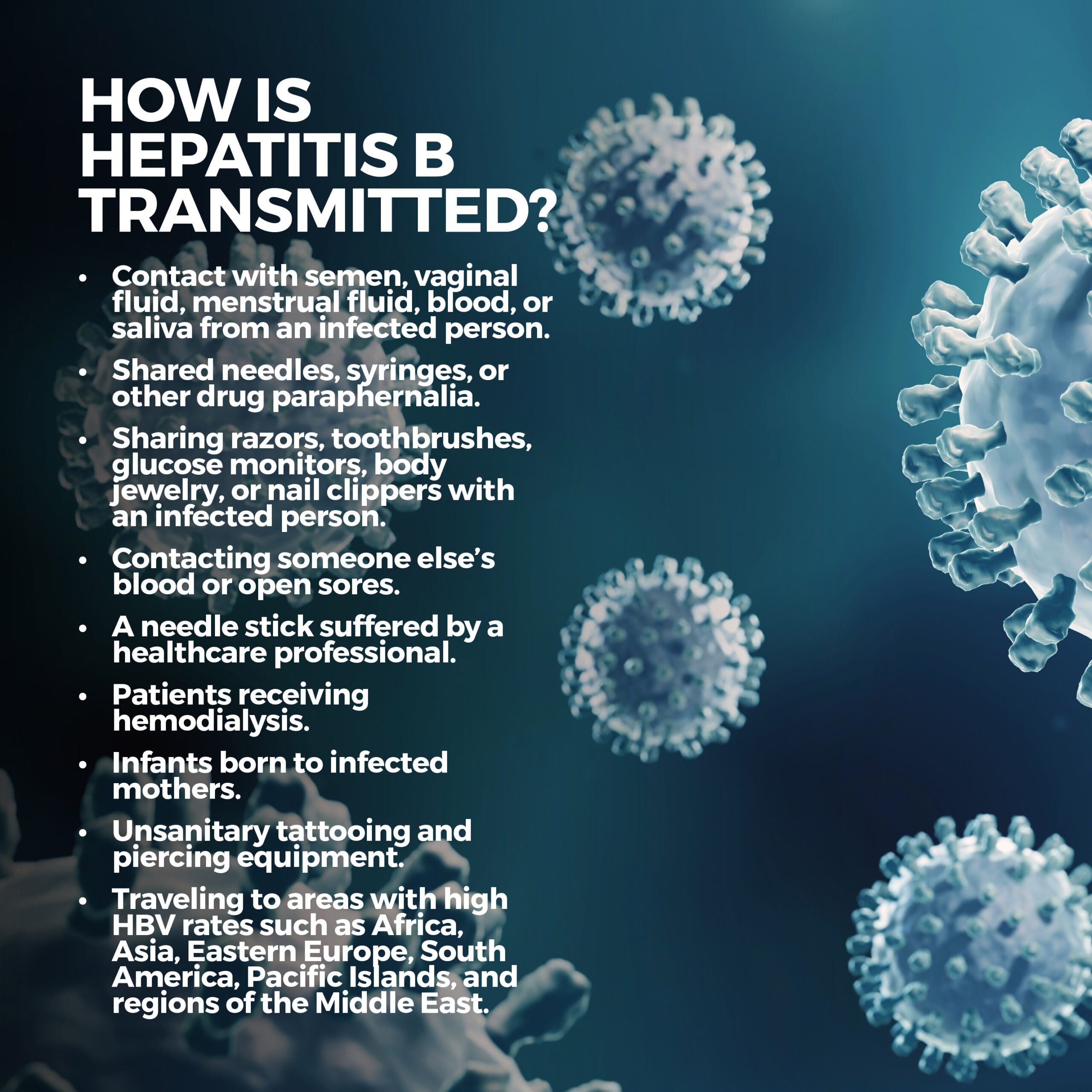
If you get hepatitis B when you’re an adult, it’s typically brief. Your body will fight it, and it will go away in several months. After this, you’ll be immune. This means your body will have built up resistance to HBV, and you can’t get it again.
Hepatitis B can’t be spread through:
- Kissing.
- Sharing utensils.
- Coughing.
- Sneezing.
- Food.
- Water.
Hepatitis B Symptoms
Acute hepatitis B usually has no symptoms. This means you don’t look or feel sick. Most people don’t get symptoms, but if you do, they can happen 60 to 150 days after infection. If you do have symptoms, you may experience the following:
- Low-grade fever.
- Persistent fatigue.
- Loss of appetite.
- Nausea.
- Joint pain.
- Abdominal pain.
- Dark-colored urine.
- Clay-colored feces.
A rare, potentially fatal condition called fulminant hepatitis can cause your liver to fail suddenly and rapidly, sometimes within a matter of days.
Acute vs. Chronic Hepatitis B
There are two types of hepatitis B, with varying degrees of seriousness:
- Acute Hepatitis B – An acute hepatitis B infection typically lasts less than half a year after exposure to the virus. Your immune system will completely clear the infection from your body (spontaneous clearing). Complete recovery only takes several months. Although most people’s hep B infection is acute, it may lead to chronic hepatitis B.
- Chronic Hepatitis B – Chronic hepatitis B lasts six months or more. It remains because your immune system is unable to battle the infection. Chronic HBV may last your entire life and spawn a serious or fatal condition.
Newborns and children younger than five run the highest risk of an acute condition becoming chronic. Approximately 9 in 10 infants who are infected develop chronic HBV. A chronic condition may remain unnoticeable for decades until you become critically sick from liver disease.
Complications
If you have a chronic hepatitis B infection, it can trigger serious complications, including:
- Cirrhosis (liver scarring) – Inflammation from a chronic HBV infection can cause severe scarring. This scarring may hamper the liver’s ability to function normally.
- Liver cancer – Chronic hepatitis B increases the risk of liver cancer.
- Liver failure – Liver failure means that the liver has ceased functioning. When someone has liver failure, they need a liver transplant in order to live. Signs and symptoms of liver failure include:
- An enlarged spleen (splenomegaly).
- Jaundice (a condition that turns your skin and the whites of your eyes yellow).
- Swelling of the legs and feet (peripheral edema).
- Abdominal fluid retention (ascites).
- The liver losing its ability to remove toxins. This buildup of contaminants can affect the brain (encephalopathy), causing confusion.
- Reactivation of HBV virus – Reactivation of chronic hepatitis B can occur spontaneously. Still, it’s usually activated by medications that suppress the immune system (immunosuppressives such as chemotherapy drugs or high doses of corticosteroids. It can also be caused by TNF inhibitors (medications that stop inflammation), solid organ or bone marrow transplants, and simultaneous infection with hepatitis C.
- Other illnesses – Chronic hepatitis B can lead to kidney disease or blood vessel inflammation.
Hepatitis B Diagnosis
Since the infection may lack symptoms, blood tests must be done to diagnose HBV. There are several tests, and each one diagnoses different things:
- HbsAg – A positive (reactive) HBsAg (hepatitis B surface antigen) result indicates whether you have hepatitis B. Presence of the HBsAg antigen in your blood means you are currently infected. An antigen is a substance in the HBV virus that causes your immune system to fight the infection. The hepatitis B vaccine is made with HBsAg.
- anti-HBs – A positive anti-HBs (hepatitis B surface antibody) result means you’re not infected. An antibody is a protein your immune system creates to help your body fight the virus.
- anti-HBc – A positive result for this antibody (hepatitis B core antibody) test indicates that you’ve previously been exposed to hepatitis B.
Other tests that can help diagnose HBV or complications include:
- Liver ultrasound – Transient elastography (liver ultrasound) is a type of ultrasound that can help determine the extent of liver damage. This test uses sound waves to measure the liver’s stiffness. Stiffness is a result of fibrosis (the first stages of liver scarring) or cirrhosis (a buildup of scar tissue that overtakes the liver).
- Liver biopsy – During a biopsy, a small needle is inserted through your skin and into your liver. A small tissue sample is removed and examined for liver damage.
The Hepatitis B Vaccine
The HBV vaccine is a series of two to four shots over six to 12 months. It’s injected into the arms of adults and the thighs of babies and young children. Getting the entire series of vaccinations has been shown to protect 95% of people who receive them. Studies show that the protection can last 20 to 30 years.
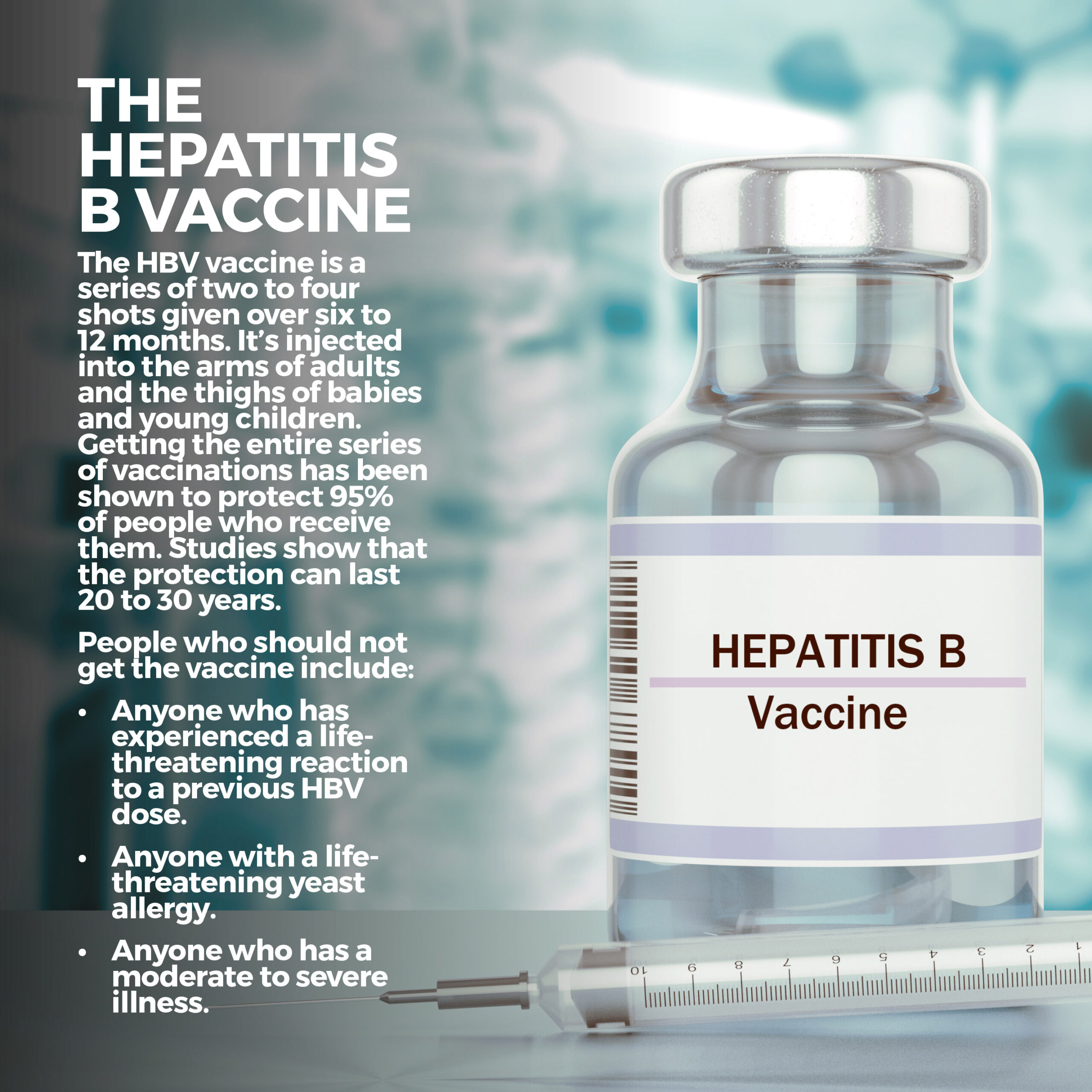
People who should not get the vaccine include:
- Anyone who has experienced a life-threatening reaction to a previous HBV dose.
- Anyone with a life-threatening yeast allergy.
- Anyone who has a moderate to severe illness.
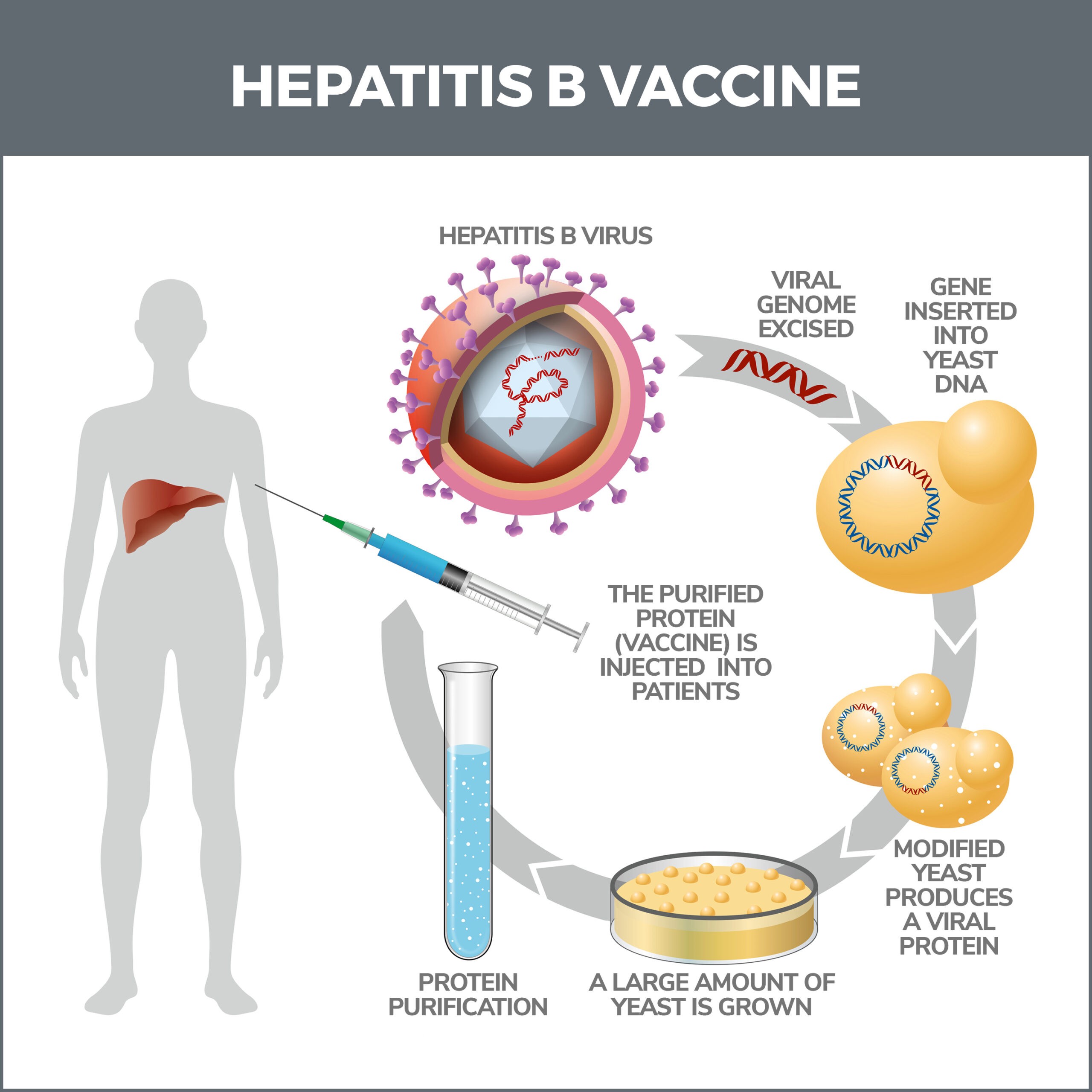
Treatment for Acute Hepatitis B
If you know you’ve been exposed to HBV, an injection of an antibody called immunoglobulin within 24 hours may shield you from getting sick from the virus. Since this vaccine only provides emergency, short-term protection, you should get the hep B vaccine simultaneously.
- Interferon injections – Interferon is a synthetic version of a naturally occurring material that the body uses to fight infection. It’s typically administered to women who want to get pregnant and young people who don’t want long-term treatment.
- Antiviral medications – These medications include lamivudine (Epivir), Tenofovir (Viread), adefovir (Hepsera), entecavir (Baraclude) and telbivudine (Tyzeka).
- Liver transplant – If your liver has been damaged to the point of failure, you may need a liver transplant. During this procedure, your liver is removed and replaced with a healthy one. Transplanted livers are usually obtained from deceased donors. Some also come from living donors who contribute part of the organ.
Contact Us
If you think you have hepatitis B or HBV symptoms, getting treatment as soon as possible is important.
Contact us today! The team of professionals at GastroMD looks forward to working with you. We are one of the leading gastroenterology practices in Tampa Bay. We perform a host of diagnostic procedures using state-of-the-art equipment in a friendly, comfortable, and inviting atmosphere where patient care is always a top priority!



